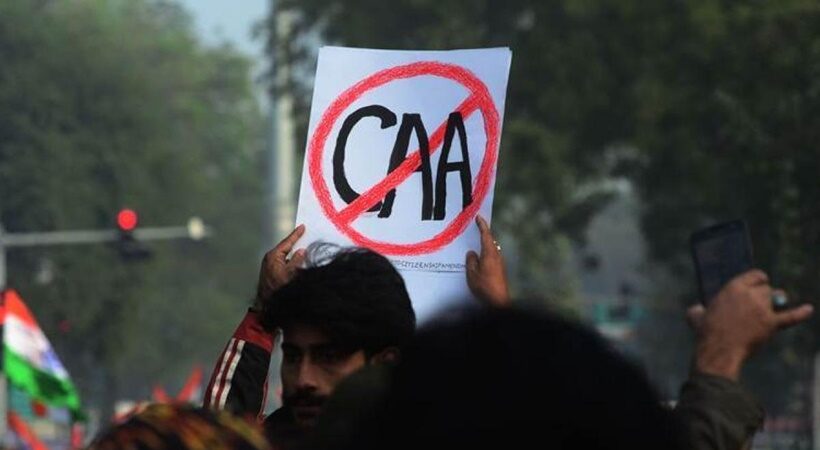The Parliament of India passed The Citizenship (Amendment) Act (CAA) on 11 December 2019 by amending the Citizenship Act of 1955. The act of 2019 aims to grant citizenship to persecuted minority groups from the countries like Pakistan, Bangladesh and Afghanistan. Hindus, Sikhs, Buddhists, Christians, Parsis, and Jains are the minority communities, identified in the CAA.
CAA act also changed the interpretation of illegal migrants. The bill states that any person belonging to the above-mentioned communities and entered the territory of India on or before the 31st December 2014 or who has been exempted by the Central Government under the Foreigner’s Act 1946 shall not be treated as an illegal immigrant under CAA. The bill intends to protect the migrants from the proceedings of being illegal migrants, who were forced to take shelter in India before the stated date.
In other words, the Bill makes the process easier for the persecuted people from the neighbouring countries to gain Indian citizenship.
Exclusion Of Muslims Stirred Up A Hornets’ Nest
The act does not include the Muslims for which it has been widely criticized in the country. Replying to the criticisms, the government said that Muslims can seek shelter in the Islamic nations. There were a lot of petitions in the SC against the bill, stating that it is discriminatory and violates the right to equality and hence is unconstitutional.
Migrants benefiting from the CAA can choose to live in any state of the country.
Before CAA, citizenship in India could only be gained via naturalization, which means that the people who stayed in India for 12 years or 11 out of the previous 14 years, can be granted citizenship. Citizenship can also be gained by the people whose parents or grandparents were born in India or even if one of their parents takes birth in India. Also, it could be gained by the way of registration if the individual has lived in India for the past 7 years.
What Does The 1955 Act imply?
Under the 1955 act, illegal immigrants were defined as the ones who forged documents to enter India, and who do not have valid passports. If a person stayed in India after the expiry of his visa can also be termed an illegal migrant and will also be liable for prosecution.
CAA exempted a few groups, particularly in the North-East of the country. It does not apply to the tribal areas of Assam, Meghalaya, Mizoram and Tripura. The bill will also not apply to states like Arunachal Pradesh and Nagaland.
The bill also allows a foreigner to register as an Overseas Citizen of India if they or their spouse are of Indian origin. The bill also provides them with the right to travel freely in India, acquire a job and undergo education in the country.
The Bill also states that OCI cardholders can lose their status if they conduct any illegal activity and violate any laws for any minor or major offences.
The migrants from the above-mentioned communities will not automatically become citizens of India, they will have to apply, following all the procedures given. It will be examined if he has all the qualifications for registration or naturalization to become an Indian citizen before he is given the citizenship of India.
After the bill was passed, the country witnessed nationwide protests by various groups in society. The protests continued unabated till the pandemic hit the country. With Covid-19 subsiding gradually from the country these protests could reemerge if Central Government decides to implement the act across the country.
The Bill came into force in January 2020, but has not yet been implemented as the rules for the Bill are not yet framed.
And the CAA does not apply to the citizens of India.



















